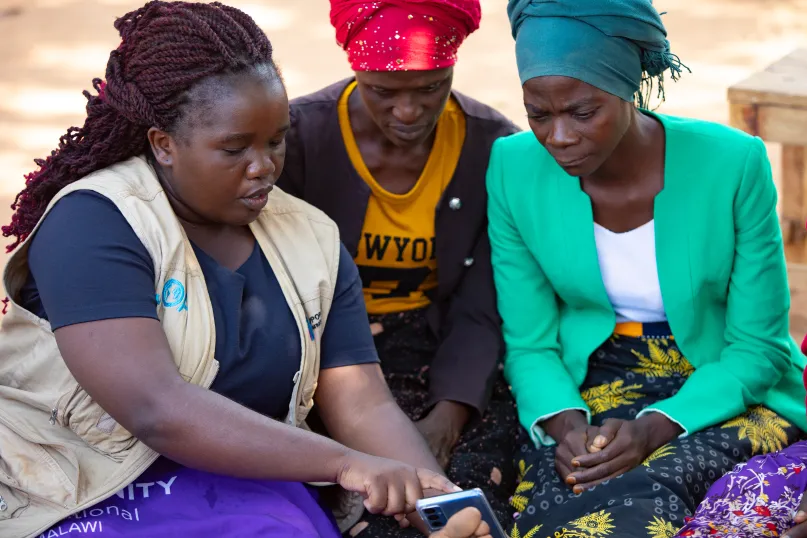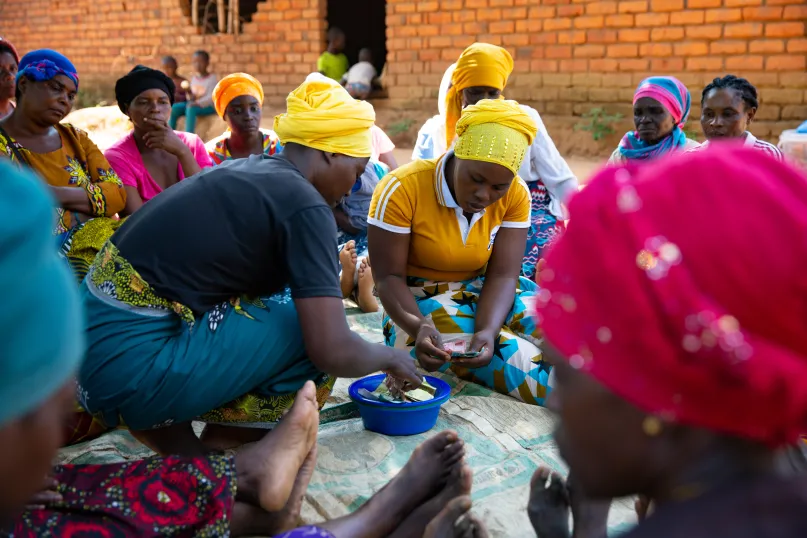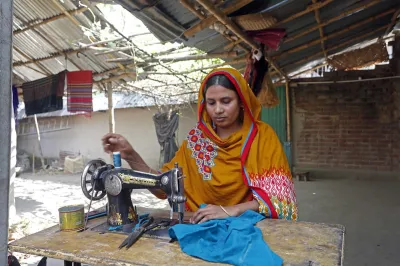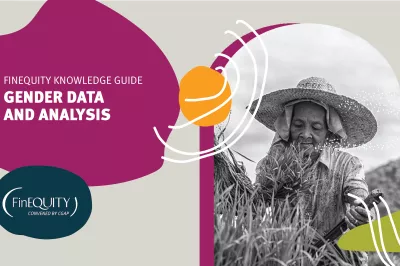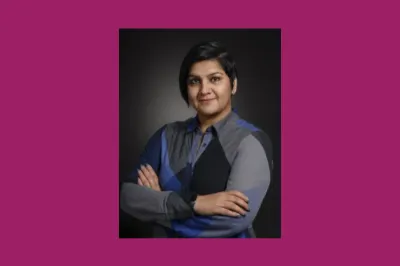Member Spotlight: Lydia Baffour Awuah
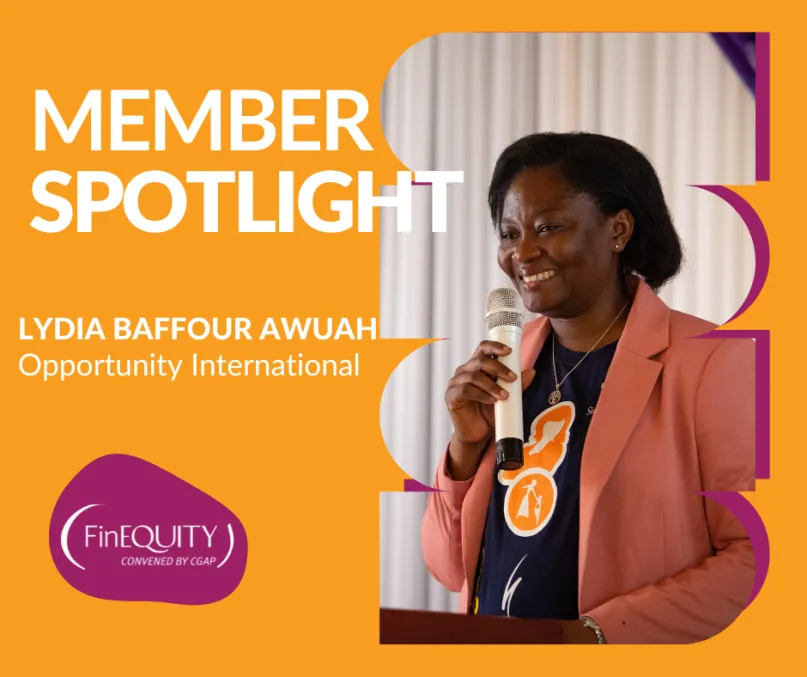
FinEquity: Tell us a little bit about yourself?
Lydia Baffour Awuah: I am a Senior Programme Manager at Opportunity International, a global non-profit that provides people living in poverty with access to vital financial services, training, and support to help them work their way out of poverty and build sustainable livelihoods. I provide oversight on project design and management on many of our programs across Sub-Saharan Africa. Much of my work involves providing strategic expertise on gender and women’s economic empowerment initiatives, to help break down barriers to women’s financial inclusion. I’m originally from Ghana, but have been living in Oxford, UK for the past 16 years.
FinEquity: What originally drew you to the women’s financial inclusion and economic empowerment sector? What has kept you here?
Lydia Baffour Awuah: My quest to pursue a career in microfinance and the financial inclusion sector began when I did my internship with Sinapi Aba Trust, a leading microfinance organization in Ghana. This provided me with invaluable experience in learning and understanding microfinance and how access to finance, gender awareness and training positively change lives. Realistically how far can a first loan of about US$50 do, I asked? I was pleasantly surprised to hear inspiring stories about how access to loans and training from Sinapi Aba, enabled women to grow their businesses, diversify income streams and household incomes. In turn, this increased their ability to pay for food, school fees and health care of their families, making them the 'change agents' of their families.
However, many of the women also said to me "no bank believed in me before to give me a loan to grow my business”. Clearly, these women did not lack ambition or entrepreneurial spirit – what they needed was an opportunity. This really struck a chord and ignited a passion in me to help address this, and that is exactly what I’ve been dedicating my career to ever since.
Today, I continue to champion strategic initiatives that put women at the center of program design to meet their real needs. Investing in women is truly a smart investment for when a woman is empowered, she can lift herself, family and entire community out of poverty with dignity and purpose. This is the power of an opportunity!
FinEquity: Any current projects you’re working on/or recently worked on that you find particularly exciting/engaging?
Lydia Baffour Awuah: We are currently implementing a three-year project in Malawi funded by Jersey Overseas Aid (JOA) aimed at strengthening the capacity of partner financial service providers (FSPs) to provide innovative, pro-poor financial products and services to marginalized and previously excluded rural populations especially women
As part of this project, we are equipping women farmers and rural entrepreneurs to diversify their income generating activities through our innovative Women in Business mentorship program, where emerging women entrepreneurs are paired with successful and experienced entrepreneur (mentor) for advice and support to help them grow their businesses. By digitalizing their savings groups, women are also able to free up time to focus on their businesses, whilst preparing them to become “bank ready” through financial education training. The women also undergo a joint vision building exercise with their spouses in which they map out their 3–5 year goals and come out with realistic steps to achieve these goals. The goals mostly center on tangible assets such as building a house, buying motorbikes, providing better education for their children, nutrition, and food security. This is encouraging women participants and their households to dream big and think beyond their present circumstances.
I’m also super excited about a soil health pilot alongside this project, leveraging regenerative agricultural practices to build resilience. Every year, an average of 1.7 million people in Malawi predictably suffer from food insecurity during the lean season. Good soil health is essential for improving the quantity and quality of crop yields, and thus for food security.
In addition, Opportunity International is using new technologies including AI and space technology to boost smallholder farmers’ access to finance and vital information to grow their farms. Although the distribution of such technology remains unequal, we are working to bridge the digital gender gap by building women’s trust in Digital Financial Services and ensuring marginalized women are not left behind in the digital sweep.
FinEquity: What have been some of the most impactful findings you’ve come across in your career?
Lydia Baffour Awuah: It has to be the power of opportunity and reflecting human-centered design in all programs. The fact that women entrepreneurs often struggle to obtain the amount of credit they require is well known and documented. However, giving out loans to women with the amount they need says to them, "I trust you". This is a fundamental change. It means they no longer have to make multiple loan applications or juggle repayments every week or month. It also saves them time to focus on their business and reduces personal and institutional risk.
For example, our alternative collateral pilot in Ghana for women-led SMEs proves that by expanding the range of acceptable collateral, it is possible for MFIs to provide much needed capital to women entrepreneurs without increasing the risk of default. I have also seen a lot of value in MFIs adapting their processes to women's needs. By understanding the client's full financial history, simplifying credit applications, providing options for alternative collateral, and increasing access to digital financial tools, MFIs can help women entrepreneurs to grow their businesses.
The need to explicitly engage with men and boys (including local leaders, husbands and male family members) in our gender mainstreaming efforts cannot be over emphasized. Opportunity International’s comprehensive approach to institutional gender transformation has helped create common vocabulary around gender and women’s entrepreneurship among staff, clients, and their spouses, thus creating an enabling environment for women entrepreneurs to better manage their businesses and thrive!
FinEquity: What role does FinEquity play in your work? Where do you see value in this community? How has being a member shaped your work?
Lydia Baffour Awuah: Well, a community of practice like FinEquity can add value to our work on many fronts. It is a great platform for knowledge sharing including using it to disseminate and spotlight key learnings from our work, and to learn from others including current trends and best practices. FinEquity not only provides networking opportunities to learn about who is doing what and where, it is also an excellent platform to explore opportunities for partnership and collaboration.
FinEquity: What can our members connect with you about/what can they ask you about?
Lydia Baffour Awuah: Members can connect with me about a wide range of topics on women’s economic empowerment and financial inclusion in general! Whether they are curious about how we mainstream gender into partner financial institutions, breaking down barriers for financial inclusion for marginalized groups, agriculture and rural financing, gender and climate resilience, digitalization of Village Savings and Loans Associations, designing products and services for women-led SMEs, social performance management, or just a friendly chat on serving the “women market”. Please connect with me.
